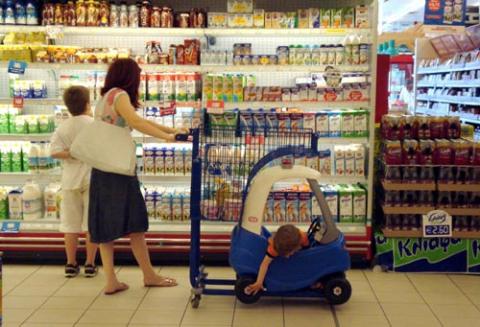Will the price of milk and pasta really decide Greece's fate?

By Mehul Srivastava & Nikos Chrysoloras
How much should be the sales tax for a beer and kebab in an Athens taverna? How much for a carton of milk at the local shop? Or bought on an island instead of the mainland?
The integrity of the euro depends on Greece and its creditors agreeing on the answers to these mundane questions. After five months, including talks every day in Brussels this week, consensus has proved elusive.
"When it comes to negotiations, very often a very small and insignificant thing comes to signify a much bigger difference," said Stathis Kalyvas, a professor of political science at Yale University. "It may sound absurd right now to be arguing over the price of milk, but in the end, these things can become political hot buttons."
The acrimony of past meetings turned into confusion bordering on farce in recent days as competing draft proposals were dispatched, dissected and ditched. The Maltese finance minister said on Thursday he didn't even know where the disagreements lay anymore, or what had been added and deleted.
For all the back and forth, the biggest stumbling block may remain mistrust. The Greeks believe that unsustainable debt is the root of their woes and Europe won't forgive any of it. Creditors believe that Greek leaders remain unwilling to overhaul a dysfunctional economy after more than five years of prodding and at least 200 billion euros ($224 billion) of bailout loans.
Ideological clash
The clash is reflected in the pettiest of disputes.
While Prime Minister Alexis Tsipras and his Coalition of the Radical Left, or SYRIZA, rose to power promising the restoration of national pride, Europe's top economic officials are embroiled in matters...
- Log in to post comments









